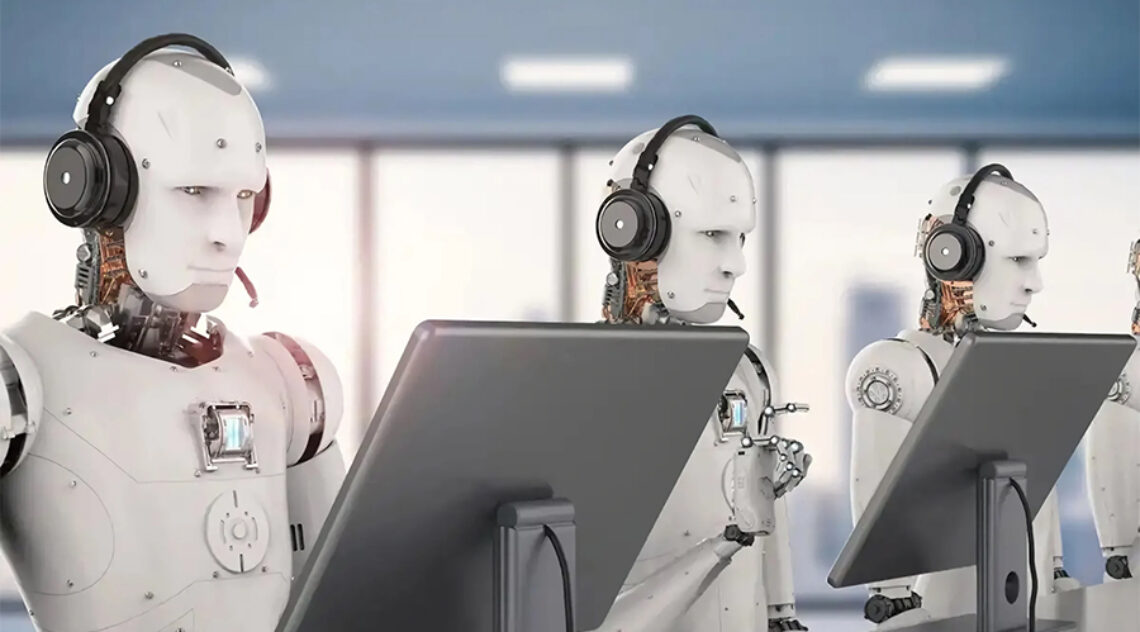
The International Monetary Fund (IMF) has put numbers to the revolution that artificial intelligence will cause in the world of work. According to its most recent report, almost 40% of the world’s jobs will be affected by the emergence of this technology. In some cases, to complement them. In others, he warns, to replace them.
The IMF has called AI “a technological revolution” capable of boosting growth and incomes around the world. Although it also “could deepen inequality.” According to the analysis, the impact would be stronger in the most developed countries.
About 60% of jobs in developed economies may be affected by artificial intelligence. Again, two opposite realities. In half of these jobs, in countries like the United States or China, technology will boost their productivity. “In the other half, AI applications can execute key tasks currently performed by humans,” he says. the report.
The IMF estimates that this will reduce labor demand. Consequently, we will see lower wages and a reduction in hiring. “In the most extreme cases, some of these jobs may disappear,” warns the organism.
The IMF warns about the risk of artificial intelligence in skilled jobs
The impact is expected to be smaller in emerging markets and low-income countries. Artificial intelligence will affect 40% and 26% of jobs, respectively. According to the IMF, the “immediate disruption” would be less in these countries because they do not have the infrastructure or qualified workforce to take advantage of this technology.
And artificial intelligence brings with it this particularity. Historically, automation and new technological developments impact the most routine and least skilled jobs. But now the most skilled workers are also in danger.
The Organization for Economic Cooperation and Development (OECD) warned of this risk in another analysis published in July last year. “Occupations in finance, medicine and legal activities, which often require many years of education and whose primary functions rely on accumulated experience to make decisions, may suddenly find themselves at risk of being automated,” he explained in his Employment Outlook report. .
According to OECD calculations, the 27% of the workforce is at high risk of being automated due to the emergence of this technology. However, the organization clarified in its report that the change would be gradual. In the immediate future, artificial intelligence will transform jobs rather than replace them.
Greater inequality
That the impact on lower-income countries is lower is only good news in the short term. In the end, the IMF points out, the delay in the incorporation of artificial intelligence “increases the risk that technology could worsen inequality between nations over time.”
It could also enhance inequality within these countries. Those who have already studied the phenomenon maintain that younger workers may find it easier to incorporate the new tools into their work. “We may see polarization within income brackets: workers who can take advantage of AI will see an increase in their productivity and wages, and those who cannot may be left behind,” the IMF report explains.
Structural inequality will continue to harm specific populations, such as women, the agency says. Therefore, governments must focus on “improve regulatory frameworks”, safeguarding those negatively affected. At the same time, they encourage investments in digital infrastructure and a digitally competent workforce.
The fund claims that if productivity increases are large enough, income levels could rise for most workers. He insists that the era of artificial intelligence is already here: “It is still in our hands to ensure that it generates prosperity for all.”